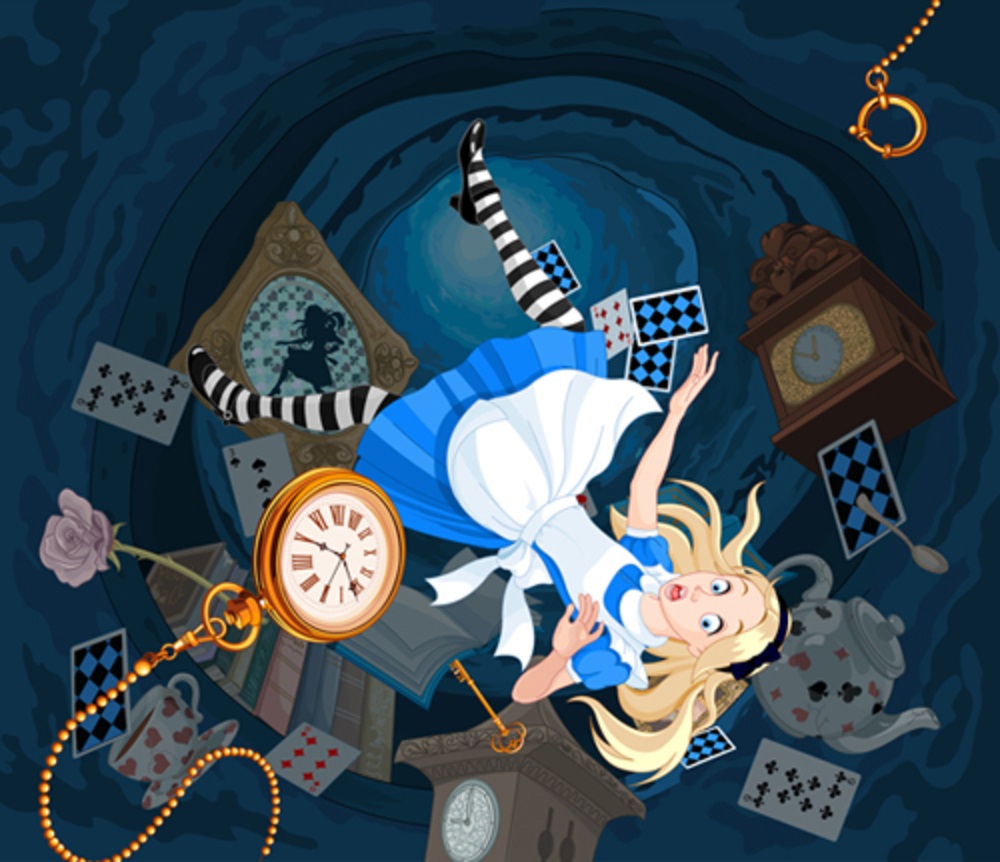The news cycle is shorter than ever. That is commonly accepted wisdom (though it is debatable whether there is anything more worthwhile to say in the endlessly shortening news cycle or not). One easily gets the impression that the news is a track of sad music on endless repeat. Recently, I am reminded that the news is an endless rabbit hole that you can fall into and never come back out from.
The news
I used to not really watch the news. In addition to occasional online browsing, I would catch a few minutes of NPR here and there while driving the kids somewhere or commuting back and forth between my house and school.
But recently, I’ve felt myself falling down the rabbit hole of online news.
Online news
Since starting into pastoral ministry in January, I have tried to be more aware of what’s going on in the world. The stuff in the world and community weighs upon the lives of the people who live in the community, so it makes sense to engage with the news. But there is also a danger, which is what I have been noticing recently.
I have started to fall down the rabbit hole.
The rabbit hole
In the last couple weeks, I find myself with a nagging urge to go check the news. Have a couple minutes? Pull up the news tab. Need a break from thinking about the sermon? Go scan the news. And so forth. After finishing a chunk of work, rather than taking a couple minutes to stand up, walk around, and stretch, I find myself browsing news headlines.
Note, browsing headlines is not a very good way to engage with the news to begin with.
Since the headlines change by the minute—even when very little of substance changes that quickly—there is always something new to look at, read, be interested in. Sometimes there are stories that are worth reading. Sometimes there are stories which promise a juicy tidbit. For someone who has not watched an NFL game in I’m not sure how many years now, so far this season I’ve seen all sorts of headlines about Tom Brady’s life both on and off the field.
How does the rabbit hole draw us in?
The pull
I suspect the draw to go and check the news is much like the well-known and studied way that social media apps work. In short, social media platforms use algorithms. All that means is that they use complex mathematical rules describing how data relates to each other.
Check out here for a brief explanation of how algorithms work on various social media platforms.
Combining these rules, and the scads of information the social media company has about you, its user, results in you receiving a continuous stream of content directed your way that you should like to look at.
“Like” simply means content that the social media company believes you will take the time to look at, not whether you will find it pleasant, happy, or uplifting.
This all works on a pretty simple premise: our brains crave novelty. Said differently, we notice new things and tune out things that aren’t changing. Just think of the last time you walked into your favorite restaurant. When you first step in the wall of aromas envelopes you. Your nose is going wild as you soak up the delicious scents.
Within a couple minutes, you don’t even notice the smells anymore. But if you got up and walked into another restaurant, your nose would go crazy again. Why is this? Our brains prioritize paying attention to things that are new and changing, not to things that are staying the same. New stimuli—smells, sounds, images, touches—get high priority, but if the stimuli don’t change, in a short time they get downgraded and we no longer pay conscious attention.
Back to the digital world of social media and news. Online companies face one simple problem: the main way they make money is by selling adds, not by charging their users. In the online economy, you are the product. More pointedly, your attention is the product being sold by the tech company to an advertiser. It is in the tech company’s financial interest to keep you browsing as much as possible and coming back as often as possible.
The novelty-seeking brain is key. I want novel content. The news sites give endless novel content. Constantly changing headlines. The endless promise of something good.
Is falling into the rabbit hole good?
The dilemma
I‘ve been noticing that this increased intake of online news is complicated. On the one hand, I know much more about “what is going on in the world” than I have for quite some time. On the other hand, I’m not really sure that is a good thing. And I am not alone on this hunch.
It turns out, many studies note that watching the news can be deleterious to your health. Beyond the very real possibility that my stress (and yours, too) is heightened by watching the news, I wonder how all this casual news consumption relates to my ability to live well with the people I live with.
Staying out of the rabbit hole
In the next post, I reflect on some different things I am trying in order to put better boundaries around the news in my life. After all, as neat as it is to know things about what is going on all over the world, loving my neighbor as myself certainly should begin with my actual neighbors, not my digital ones.

